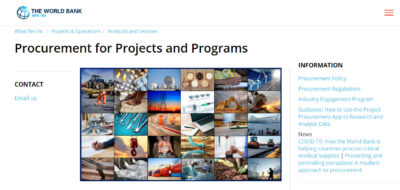How young people can prepare for a life in international development
Finding your way into international justice
Political science undergraduate students like me often choose international development as a part of their studies. With a secondary degree a growing necessity, law school is often seen as the most logical continuation of our field of studies, especially if we are interested in international justice.
But there are other options. A career in international justice may combine political science and development studies in a legal setting, but you don’t necessarily need a law degree.
Two experts I spoke with agreed that that there is more than one path to working in international justice. John Cerone, a professor of law and visiting scholar to the International Court of Justice (ICJ), talked about his decision to get a law degree.
My other contact, who prefers not to be named, works with the International Criminal Court (ICC). He says that graduate studies in international relations, diplomacy, law and economics are essential.
To start, go abroad
Everyone I spoke with for this article said that traveling after graduation is imperative. Regardless of future school plans, getting out of one’s comfort zone will broaden perspectives, they told me. “Travelling is the best exposure. You’ll meet all kinds of nationalities. And if you speak English you are at a huge advantage.”
Get an internship
“The way to break into an international organization is through an internship,” a spokesperson with the ICC told me. Although many are unpaid, internships provide vital knowledge and experience while displaying a person’s work ethic and dedication.
Information about internships with the ICC and ICJ are on their web sites, where they encourage applications from “young professionals who are in the early stages of their careers.”
The minimum requirement for an internship at the ICC is a university degree. Graduates specializing in public international law, humanitarian law, human rights law and comparative law and criminology are welcome to apply for legal positions. Graduates of history, political science, international relations, journalism, communications and economics can fill non-legal positions.
English and French are the languages of ICJ and ICC but having a working knowledge of Chinese, Spanish or Arabic is considered an asset.
Law School
Getting a law degree is the conventional route to working in international justice. But from John Cerone’s experience, a law degree alone is often not enough to be successful.
Now the director of the Center for International Law and Policy at New England Law – Boston, Cerone studied abroad and then got an internship with Interights, a UK human rights organization. He wanted to “specialize further, expand networks and increase the prospects of finding work in the highly competitive field of international human rights law.”
“Doing an LLM really depends on each individual’s circumstance. The factor to consider is the extent of specialization in a Juris Doctor (JD) program,” he said.
An advanced law degree is particularly valuable if working for an international organization. Choosing the right international focus for your LLM will help expand your professional network, adding legitimacy to knowledge, he said.
For example, the Hague Academy for International Law is a centre for research and teaching in public and private international law. Applicants need to have a university and three-year law degree. The school says it aims to provide “opportunities to have contacts with ICJ, ICC, the Iran US Claims Tribunal, the Bureau of Permanent Court of Arbitration, the Conference on Private International law and other institutions.”
The Importance of Experience – (and getting a Masters)
It may be difficult to get a career start, or even an internship, with an undergraduate degree. My contact at the ICC said that graduate studies in diplomatic studies, international law, international relations and international economy are fundamental.
His career got underway with an internship. After sending out many applications, he was offered one in Croatia with the Organization for Security and Co-operation in Europe, and then a research scholarship with CSIS in Washington. He has since worked with UNICEF in Georgia and in Afghanistan with the UN and NATO before he landed a job with the ICC as a Security Analyst.
For John Cerone, volunteering led to his first paid human rights job at the UN, helping draft a legal framework paper on state responsibility and human trafficking. He then worked with the UN mission in Kosovo.
“The experience was invaluable” he says. He learned about challenges of post-conflict construction, implementing international human rights law and working with international bureaucracies and an array of people. Since then, he has worked on projects in Afghanistan, Cambodia, East Timor, Kenya and Sierra.
Persistence
Both professionals I spoke with agree that perseverance is the key to professional success. Both applied to every human rights organization and international justice institution they could find since graduation. Yet experience is important. It was their fieldwork combined with academic training that validated their applications and led to their current positions.
“The main thing is persistence. You have to keep applying, keep searching, keep writing applications; send your CV to a million places. It’s like fishing at the beginning because you don’t have much to offer.” I was told. “If you don’t apply, the answer is no.”






